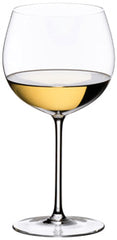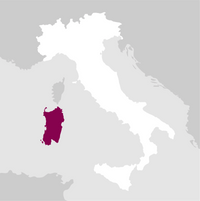Description
Still white wine from Sardinia, produced by Dettori in the Romangia del Logudoro area, 16% ABV, 100% Vermentino. 2022 vintage. A wine that embodies Dettori's biodynamic philosophy, with grapes grown in Badde Nigolosu, 300 meters above sea level. Maceration on the skins without added sulfites, natural vinification, and aging in cement. On the nose, the first time you notice its intensity, the second its persistence, and the following times its countless, ever-changing aromas, of great precision, cleanliness, and pleasantness. Above all, floral notes (peony and broom) and fruit. From fresh notes of citrus, citron, and grapefruit in particular, it transitions to plumper, summery notes of yellow peach and apricot, very intense yet perfectly intact. Deep straw yellow in color, with golden and greenish reflections. On the palate, it's rich and warm, powerful, yet never aggressive or exuberant, despite its nearly 15% alcohol content. Great acidity and a superb savory character streamline the soft, fruity palate, inviting you to keep drinking for guaranteed pleasure.
Awards
Details

Perfume

Color

Taste
Serve at:
12 - 14 °C.
Longevity:
05 - 10 years

Pairings
- Start up year: 1980
- Oenologist: Alessandro Dettori
- Bottles produced: 90.000
- Hectares: 30
Tenute Dettori is located in the extreme north-west corner of Sardinia, in the Romangia del Logudoro area, the "golden place" between Sassari and Castelsardo, where the company looks after the "Badde Nigolosu" cru.
This historic hinterland is the classic home of the Cannonau grape, which flourishes on the high hillslopes that form a natural theatre facing the Gulf of Asinara at only 4 kilometres from the sea. Here, at Badde Nigolosu, Tenute Dettori cultivates solely ancient clones native to Sardinia, tending them in accord with the tenets of biodynamic agriculture. We utilise only concrete vats for natural fermentations and maturation since the company does not need oak barrels for softening tannins. Meticulous work in the vineyards means that the grapes arrive in the cellar already exhibiting all the qualities required for making a great wine.
We have always worked in the service of our terroir, without compromise. But we have never been alone. Many wine lovers and professionals have trusted us. They tasted, selected, told and sold our wines. Over the years, Badde Nigolosu’s wines have met the most authoritative professionals in the world of wine. Without them today we would not be here yet. Read more


| Name | Dettori Bianco Badde Nigolosu 2022 |
|---|---|
| Type | White green still |
| Denomination | Romangia IGT |
| Vintage | 2022 |
| Size | 0,75 l |
| Alcohol content | 16.0% by volume |
| Grape varieties | 100% Vermentino |
| Country | Italy |
| Region | Sardinia |
| Vendor | Dettori |
| Origin | Badde Nigolosu (Sassari) |
| Climate | Altitude: 300 m. a.s.l. |
| Soil composition | Clayey |
| Cultivation system | Head-training |
| Plants per hectare | 5,500 |
| Yield per hectare | 3,000 kg/hectare |
| Harvest | By hand, in early September with crates. |
| Production technique | Only sulphur, horn manure, horn silica and green manure are used in the vineyard. The grapes are destemmed but not crushed and macerated in concrete vats without added sulphur dioxide. |
| Wine making | The maceration can last from two to four days according to the must's features; the company does not carry out longer macerations. The wine is always drawn off by hand in order not to harm the skins. The wine is then put into concrete vats until bottling, usually two to three years later. No synthetic chemicals are used apart from sulphur. No added yeasts, enzymes, or any other adjuvant in fermentation or maturation are used. The wine is not filtered, clarified or aged in barriques. |
| Allergens | Contains sulphites |





